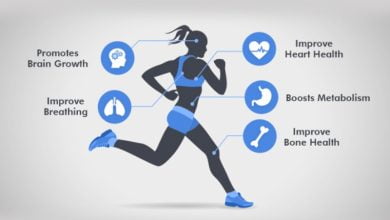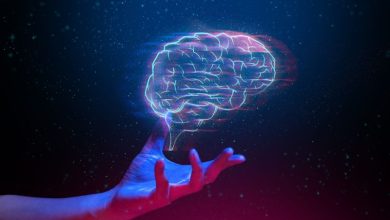
Introduction:
Nutrition is the process by which organisms obtain the necessary nutrients from food for growth, maintenance, and overall well-being. It encompasses the intake of various macro and micronutrients that are vital for the body’s physiological functions. A balanced diet rich in essential nutrients is crucial for optimal health and can significantly influence one’s physical and mental well-being.
The Importance of Nutrition:
Nutrition plays a fundamental role in every aspect of human life, from infancy to old age. It affects growth and development, energy levels, immune function, cognitive function, and even mood regulation. Proper nutrition is essential for preventing chronic diseases such as obesity, diabetes, cardiovascular diseases, and certain types of cancer. Moreover, it contributes to overall longevity and quality of life.
The Importance of Nutrition: Nourishing Body, Mind, and Soul:
In the grand tapestry of human existence, few threads are as intricately woven into the fabric of our lives as nutrition. Nutrition, the science of nourishment, is not merely about filling our stomachs; it’s about fueling our bodies, supporting our minds, and nurturing our souls. From the cellular level to the complexities of human behavior, nutrition plays a profound role in shaping our health, happiness, and overall well-being.
Fueling the Body:
At its most basic level, nutrition is about providing our bodies with the essential nutrients they need to function optimally. Every cell, tissue, and organ in our bodies relies on a steady supply of nutrients to carry out its myriad functions. Macronutrients like carbohydrates, proteins, and fats provide the energy needed for daily activities, while micronutrients like vitamins and minerals serve as cofactors in countless biochemical reactions. Without adequate nutrition, our bodies struggle to perform even the most basic tasks. Malnutrition, whether due to undernourishment or overconsumption of unhealthy foods, can lead to a host of health problems, ranging from nutrient deficiencies to obesity and chronic diseases like diabetes, heart disease, and cancer. In contrast, a well-balanced diet rich in nutrient-dense foods provides the foundation for optimal health, vitality, and longevity.
Nourishing the Mind:
Beyond its physical effects, nutrition also exerts a powerful influence on our mental and emotional well-being. Emerging research suggests that what we eat can have a profound impact on our mood, cognition, and mental health. Certain nutrients, such as omega-3 fatty acids found in fatty fish and folate found in leafy greens, have been linked to improved mood and cognitive function. Conversely, diets high in processed foods, sugar, and unhealthy fats have been associated with increased risk of depression, anxiety, and other mental health disorders. The gut-brain connection further underscores the importance of nutrition for mental health. The gut microbiome, a complex ecosystem of bacteria residing in our digestive tract, plays a crucial role in regulating mood, stress response, and cognitive function. A diet rich in fiber, probiotics, and prebiotics nourishes the gut microbiome, promoting a healthy balance of beneficial bacteria and supporting mental well-being.
Nurturing the Soul:
Nutrition isn’t just about sustenance; it’s also about connection, culture, and community. Food has the power to bring people together, fostering bonds and creating cherished memories. Whether gathered around a family dinner table, sharing a meal with friends, or exploring new culinary traditions, food serves as a vehicle for social interaction, celebration, and cultural expression. Moreover, the act of mindful eating can be a deeply spiritual experience, grounding us in the present moment and fostering gratitude for the abundance of nourishment that sustains us. By savoring each bite, honoring the journey of food from seed to table, and cultivating awareness of how food affects our bodies and our planet, we can develop a deeper connection to ourselves, each other, and the natural world.
Empowering Change:
Despite the undeniable importance of nutrition, many people struggle to maintain healthy eating habits in today’s fast-paced world. Factors such as busy lifestyles, food deserts, socioeconomic disparities, and misleading marketing tactics can make it challenging to access and afford nutritious foods. Moreover, conflicting dietary advice and fad diets perpetuate confusion and perpetuate unrealistic expectations about food and body image. Addressing these challenges requires a holistic approach that encompasses education, policy change, community empowerment, and individual empowerment. Nutrition education programs can empower individuals with the knowledge and skills they need to make informed food choices and adopt healthier eating habits. Policies that promote access to affordable, nutritious foods, such as subsidies for fruits and vegetables and restrictions on junk food advertising, can create environments conducive to healthful living. Community initiatives, such as urban gardens, farmers’ markets, and community-supported agriculture programs, can increase access to fresh, locally grown produce and foster a sense of community ownership over food systems.
Conclusion:
In conclusion, nutrition is far more than just the sum of its parts. It is the cornerstone of health, happiness, and human flourishing. By nourishing our bodies, minds, and souls with wholesome, nutrient-rich foods, we can unlock our full potential and live vibrant, fulfilling lives. As we navigate the complexities of modern life, let us remember the profound impact that nutrition has on every aspect of our existence and strive to cultivate a deeper appreciation for the foods that sustain us.
Macronutrients:
Macronutrients are nutrients that provide energy and are required in relatively large amounts. They include carbohydrates, proteins, and fats.
Understanding Macronutrients: The Foundation of Nutrition:
In the realm of nutrition, macronutrients reign supreme as the primary sources of energy and essential components for the body’s functions. Carbohydrates, proteins, and fats constitute the trio of macronutrients, each playing distinct yet interconnected roles in maintaining overall health and well-being. By delving into the intricacies of macronutrients, we can unlock valuable insights into the fundamental principles of nutrition and learn how to optimize our dietary choices for optimal health.
Carbohydrates: The Body’s Preferred Fuel:
Carbohydrates, often dubbed the body’s preferred fuel, serve as the primary source of energy for bodily functions, including cellular metabolism, physical activity, and cognitive processes. Found in an array of foods such as grains, fruits, vegetables, legumes, and dairy products, carbohydrates come in two main forms:
Simple Carbohydrates:
These sugars, including glucose, fructose, and sucrose, are rapidly absorbed into the bloodstream, providing quick bursts of energy. Sources of simple carbohydrates include table sugar, honey, syrups, and fruits.
Complex Carbohydrates:
Complex carbohydrates consist of long chains of sugar molecules, which take longer to digest and provide sustained energy. Whole grains, starchy vegetables, and legumes are rich sources of complex carbohydrates, as are fiber-rich foods like fruits and vegetables. While carbohydrates are essential for meeting the body’s energy needs, not all sources are created equal. Opting for whole, minimally processed carbohydrates over refined and sugary options can help stabilize blood sugar levels, promote satiety, and support overall health.
Proteins: The Building Blocks of Life:
Proteins are the building blocks of life, playing integral roles in muscle repair and growth, immune function, hormone synthesis, enzyme production, and tissue maintenance. Composed of amino acids, proteins are found in a diverse range of foods, including animal products like meat, poultry, fish, eggs, and dairy, as well as plant-based sources like legumes, nuts, seeds, and grains. While the body can synthesize some amino acids, essential amino acids must be obtained through diet. Consuming a variety of protein sources ensures that the body receives an adequate supply of all essential amino acids. Additionally, pairing plant-based protein sources with complementary foods can enhance amino acid absorption and promote optimal protein intake.
Fats: Essential for Health and Vitality
Despite their reputation as diet villains, fats are essential for overall health and vitality. Fats serve as concentrated sources of energy, insulation for organs, carriers for fat-soluble vitamins (A, D, E, and K), and key components of cell membranes and hormone production. In addition to providing flavor and satiety to meals, dietary fats play crucial roles in brain health, cognitive function, and hormone regulation. Not all fats are created equal, however. While saturated and trans fats, found in processed and fried foods, have been linked to heart disease and other health issues, unsaturated fats, including monounsaturated and polyunsaturated fats, are considered heart-healthy and should be prioritized in the diet. Sources of healthy fats include avocados, nuts, seeds, olive oil, fatty fish, and flaxseeds.
Achieving Balance: The Key to Optimal Nutrition
While each macronutrient serves distinct functions in the body, achieving balance among carbohydrates, proteins, and fats is essential for optimal health and well-being. Rather than fixating on specific macronutrient ratios or fad diets, focusing on nutrient-dense, whole foods and mindful eating practices can help individuals meet their nutritional needs and support overall health. A balanced diet rich in a variety of fruits, vegetables, whole grains, lean proteins, and healthy fats provides the necessary nutrients for sustained energy, muscle repair, immune function, cognitive health, and overall vitality. By prioritizing whole, minimally processed foods and listening to the body’s hunger and satiety cues, individuals can cultivate a healthy relationship with food and nourish themselves from the inside out.
Conclusion: Embracing the Power of Macronutrients:
In conclusion, macronutrients are the cornerstone of nutrition, providing the essential components for energy production, cellular function, and overall health. By understanding the
roles of carbohydrates, proteins, and fats in the body and making informed dietary choices, individuals can optimize their nutrition and unlock the potential for lifelong health and vitality. Whether fueling physical activity, supporting muscle growth, or nourishing the brain, macronutrients play integral roles in every aspect of human health and well-being. By embracing the power of macronutrients and prioritizing nutrient-dense, whole foods, individuals can embark on a journey toward optimal health, vitality, and longevity.
Carbohydrates:
Carbohydrates are the body’s primary source of energy. They are found in foods such as grains, fruits, vegetables, and legumes. Complex carbohydrates, found in whole grains and fiber-rich foods, provide sustained energy and promote digestive health.
Proteins:
Proteins are crucial for building and repairing tissues, synthesizing hormones and enzymes, and supporting immune function. Good sources of protein include meat, poultry, fish, eggs, dairy products, legumes, nuts, and seeds.
Fats:
Fats are essential for absorbing certain vitamins, insulating organs, and providing a concentrated source of energy. Healthy fats, such as those found in avocados, nuts, seeds, and fatty fish, are beneficial for heart health and overall well-being.
Micronutrients:
Micronutrients are essential vitamins and minerals that the body needs in smaller quantities but are equally important for various physiological functions.
Unlocking the Power of Micronutrients: Essential Elements for Health and Vitality:
While macronutrients like carbohydrates, proteins, and fats often take center stage in discussions about nutrition, micronutrients play equally crucial roles in maintaining overall health and well-being. Micronutrients encompass a diverse array of vitamins and minerals, each with its own unique functions and impacts on bodily processes. From supporting immune function to promoting bone health and beyond, micronutrients are the unsung heroes of nutrition, quietly working behind the scenes to ensure our bodies function optimally.
The Role of Micronutrients:
Micronutrients are essential vitamins and minerals that the body requires in relatively small quantities but are critical for various physiological processes. They serve as cofactors for enzymes, antioxidants, and structural components of tissues, playing vital roles in metabolism, growth, development, and overall health. Micronutrients are primarily obtained through the diet, with different foods serving as rich sources of specific vitamins and minerals.
Vitamins: Nature’s Multitaskers:
Vitamins are organic compounds that play diverse roles in the body, from supporting immune function and energy production to promoting vision and skin health. They are classified into two categories based on their solubility:
Fat-Soluble Vitamins:
Fat-soluble vitamins, including vitamins A, D, E, and K, are absorbed along with dietary fats and stored in the body’s fatty tissues. They play key roles in vision (vitamin A), bone health (vitamin D), antioxidant defense (vitamin E), and blood clotting (vitamin K).
Water-Soluble Vitamins:
Water-soluble vitamins, such as vitamin C and the B vitamins (thiamine, riboflavin, niacin, pantothenic acid, vitamin B6, biotin, folate, and vitamin B12), are not stored in the body and must be consumed regularly through the diet. They play essential roles in energy metabolism, nerve function, DNA synthesis, and red blood cell production.
Minerals: Building Blocks of Health:
Minerals are inorganic elements that are critical for various bodily functions, including bone formation, fluid balance, nerve transmission, and muscle contraction. They are divided into two categories based on their required daily intake:
Major Minerals:
Major minerals, including calcium, phosphorus, magnesium, sodium, potassium, chloride, and sulfur, are required in larger quantities (more than 100 milligrams per day) and play essential roles in maintaining electrolyte balance, bone health, and nerve function.
Trace Minerals:
Trace minerals, such as iron, zinc, copper, manganese, iodine, selenium, and molybdenum, are needed in smaller amounts (less than 100 milligrams per day) but are equally essential for various physiological processes, including immune function, enzyme activity, and antioxidant defense.
Sources of Micronutrients:
Micronutrients are found in a wide variety of foods, with different foods serving as rich sources of specific vitamins and minerals. Fruits, vegetables, whole grains, legumes, nuts, seeds, dairy products, and lean proteins are all valuable sources of essential micronutrients. Consuming a diverse array of nutrient-rich foods ensures that the body receives an adequate supply of vitamins and minerals necessary for optimal health and well-being.
Achieving Micronutrient Balance:
Achieving balance in micronutrient intake is essential for maintaining overall health and preventing deficiencies or excesses. While consuming a varied diet rich in nutrient-dense foods is the best way to obtain essential vitamins and minerals, certain populations may benefit from supplementation under the guidance of a healthcare professional. Additionally, mindful eating practices, such as focusing on nutrient density, portion control, and listening to hunger and satiety cues, can help individuals optimize their micronutrient intake and support overall health and well-being.
Conclusion: Harnessing the Power of Micronutrients
In conclusion, micronutrients are the unsung heroes of nutrition, playing essential roles in maintaining overall health and vitality. From supporting immune function to promoting bone health and beyond, vitamins and minerals are integral components of a healthy diet and lifestyle. By prioritizing nutrient-rich foods and mindful eating practices, individuals can harness the power of micronutrients to support optimal health, longevity, and vitality. As we continue to deepen our understanding of the role of micronutrients in human health, let us strive to cultivate a greater appreciation for these essential elements and prioritize their inclusion in our diets for the benefit of ourselves and future generations.
Vitamins:
Vitamins are organic compounds that regulate metabolism, support immune function, and act as antioxidants. They are found in fruits, vegetables, whole grains, dairy products, and fortified foods. Examples include vitamin A, vitamin C, vitamin D, vitamin E, and the B vitamins.
Minerals:
Minerals are inorganic nutrients that are crucial for bone health, fluid balance, nerve function, and muscle contraction. They are found in a variety of foods, including meat, seafood, dairy products, nuts, seeds, and leafy greens. Examples include calcium, iron, magnesium, potassium, and zinc.
Balanced Diet:
A balanced diet is one that provides all the essential nutrients in the right proportions to meet the body’s needs while maintaining overall health. It typically includes a variety of fruits, vegetables, whole grains, lean proteins, and healthy fats. Consuming a diverse range of foods ensures that you obtain all the necessary nutrients for optimal health.
Challenges and Solutions:
Despite the importance of nutrition, many people struggle to maintain a healthy diet due to various factors such as busy lifestyles, food insecurity, cultural preferences, and misinformation about nutrition. Addressing these challenges requires a multifaceted approach, including education, policy changes, community interventions, and individual behavior modification. Nutrition education programs can empower individuals to make informed food choices and develop healthy eating habits. Policies that promote access to nutritious foods, such as subsidies for fruits and vegetables and restrictions on unhealthy food marketing, can create environments conducive to healthy eating. Community initiatives, such as community gardens and farmers’ markets, can increase access to fresh, affordable produce in underserved areas.On an individual level, adopting mindful eating practices, meal planning, and cooking at home can help improve dietary habits. Seeking guidance from healthcare professionals, such as registered dietitians, can provide personalized nutrition advice and support.
Conclusion:
Nutrition is a cornerstone of health, influencing every aspect of our lives. By consuming a balanced diet rich in essential nutrients, we can support our physical and mental well-being, reduce the risk of chronic diseases, and enhance overall quality of life. Embracing healthy eating habits and prioritizing nutrition is essential for achieving optimal health and vitality at every stage of life.
Understanding the Basics of Nutrition
Nutrition forms the foundation of a healthy lifestyle. It is the process by which our bodies obtain and utilize the necessary nutrients for growth, repair, and overall well-being. Understanding the basics of nutrition is essential for anyone looking to achieve optimal health.Nutrients can be classified into macronutrients and micronutrients. Macronutrients include carbohydrates, proteins, and fats, which are needed in large quantities to provide energy and support various bodily functions. Micronutrients, on the other hand, are vitamins and minerals that are required in smaller amounts but play critical roles in maintaining proper bodily functions. To ensure optimal nutrition, it is important to consume a variety of nutrient-dense foods that provide a balance of macronutrients and micronutrients. This includes incorporating whole grains, lean proteins, healthy fats, fruits, and vegetables into your diet. By understanding the basics of nutrition, you can make informed choices about the foods you consume and take control of your health.
The Importance of Optimal Nutrition for a Healthy Lifestyle:
Optimal nutrition is crucial for maintaining a healthy lifestyle. It provides the body with the necessary nutrients to function optimally, supports immune function, promotes healthy growth and development, and reduces the risk of chronic diseases such as heart disease, diabetes, and obesity.A balanced diet that includes all essential nutrients helps to maintain a healthy weight, promotes mental well-being, and enhances overall energy levels. Optimal nutrition also plays a key role in supporting the body’s natural detoxification processes, strengthening the immune system, and promoting healthy aging. In addition to physical health, optimal nutrition also has a significant impact on mental and emotional well-being. Proper nutrition can improve mood, enhance cognitive function, and reduce the risk of mental health disorders such as depression and anxiety. By prioritizing optimal nutrition, you are investing in your long-term health and overall quality of life.
The Benefits of Regular Exercise in Conjunction with Optimal Nutrition:
Optimal nutrition and regular exercise go hand in hand when it comes to achieving a healthy lifestyle. Regular physical activity offers numerous benefits, including improved cardiovascular health, increased muscle strength, enhanced mood, and weight management. When combined with optimal nutrition, the benefits of exercise are further amplified. Exercise helps to regulate appetite, increase metabolism, and improve nutrient absorption. It also plays a crucial role in maintaining muscle mass, which is essential for overall strength and vitality. Additionally, regular exercise can reduce the risk of chronic diseases such as heart disease, diabetes, and certain types of cancer.To incorporate exercise into your daily routine, aim for at least 150 minutes of moderate-intensity aerobic activity or 75 minutes of vigorous-intensity activity per week. Additionally, include strength training exercises at least two days per week to build and maintain muscle mass. By combining regular exercise with optimal nutrition, you can maximize the benefits to your overall health and well-being.
Seeking Professional Guidance for Achieving Optimal Nutrition:
While the information provided in this guide can help you understand the basics of optimal nutrition, it is important to recognize that everyone’s nutritional needs are unique. Seeking professional guidance from a registered dietitian or nutritionist can provide personalized recommendations and support in achieving optimal nutrition.These professionals can assess your individual needs, create customized meal plans, address specific concerns or health conditions, and provide ongoing guidance and support. They can also help you navigate any dietary restrictions or allergies, ensuring you still achieve optimal nutrition. To find a qualified professional, consult your healthcare provider for recommendations or search for registered dietitians or nutritionists in your area through professional organizations or online directories.
Conclusion: Embracing a Healthy Lifestyle through Optimal Nutrition:
Achieving optimal nutrition is a lifelong journey that requires a commitment to making informed choices about the foods we consume. By understanding the basics of nutrition, incorporating key nutrients into our diets, practicing portion control, and staying hydrated, we can support our overall health and well-being.
Incorporating superfoods, understanding food labels, and debunking common myths and misconceptions further enhance our ability to make informed choices about our nutrition. Combining optimal nutrition with regular exercise amplifies the benefits and helps us achieve a healthy lifestyle. While this guide provides a comprehensive overview of optimal nutrition, it is important to remember that seeking professional guidance can provide personalized support and ensure you are meeting your individual nutritional needs. Embrace a healthy lifestyle through optimal nutrition, and take control of your health and well-being today.
CTA:
Consult a registered dietitian or nutritionist to create a personalized plan for achieving optimal nutrition and embracing a healthy lifestyle. Start your journey towards better health today!




